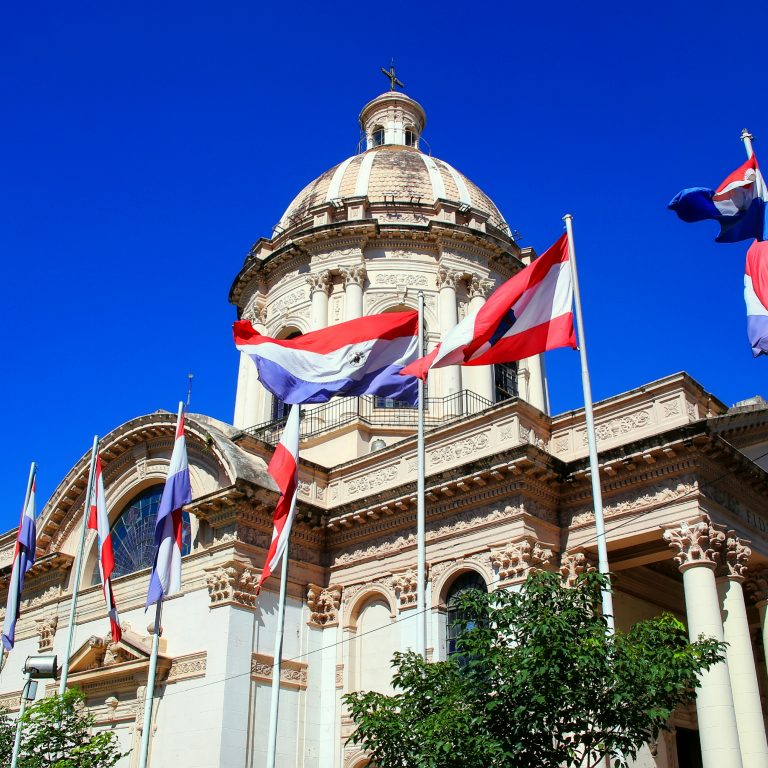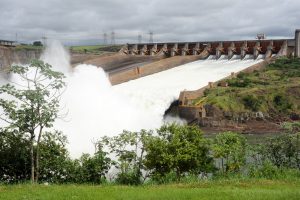Latest news about Bitcoin and all cryptocurrencies. Your daily crypto news habit.

Paraguay’s Itaipú Dam, one of the largest hydroelectric facilities in the world, is supporting bitcoin and ethereum mining in a city on the country’s border with Brazil and Argentina. These efforts have already spawned a number of new cryptocurrency businesses, creating multiple millionaires, but an ongoing reassessment of the dam’s developmental potential could spell boom or bye for the miners that have been flocking to the city.
Also Read: GMO Internet Sees Huge Leap in BCH Mining For October,
Cheap, Clean Power
Across Ciudad del Este, cheap and abundant electricity from the Itaipú Dam powers about 20,000 cryptocurrency mining rigs, with fortune-seekers converging on the city from other parts of Paraguay, as well as countries such as Brazil, China, Russia, Canada and the U.S. Development experts, however, think that the authorities should raise electricity prices and use the proceeds to tackle widespread poverty.
According to a recent Guardian feature, politicians and development experts are considering a number of alternative propositions, including redirecting exported electricity to domestic industries, renegotiating fairer prices with project partner Brazil, and tapping companies from Silicon Valley to manufacture with clean energy in Paraguay. It is expected that the proceeds would be sown back into social investment to address economic inequality and provide social welfare services for a population with skewed access to employment, healthcare, education and transport infrastructure.
However, the development narrative does not seem to be mutually exclusive with cryptocurrency mining. Paraguay, which generates more than 103 million megawatt-hours of electricity per year at the Itaipu Dam, can still take advantage of its status as the world’s biggest exporter of electricity and cash in as a go-to destination for BTC and ETH miners. Miners in the country pay between $0.03 and $0.05 per kilowatt-hour, or about one-third below the prices that they pay in Argentina.
Mining Mecca
Paraguay’s offer of clean and plentiful energy can make it a mecca for digital currency diggers, while securing sustained proceeds for the government, as interest in cryptocurrency only continues to grow. The South American country currently only uses 13 percent of its energy and exports a lot of the surplus to neighboring Brazil.
Tech entrepreneur Gregorio Bareiro thinks Paraguay has more to gain by cutting down energy exports to Brazil and keeping more capacity at home to supply to the cryptocurrency-mining industry, according to the report. Bareiro is only one of a few locals that are capitalizing on the mining boom. He started out providing cryptocurrency investors with DIY cooling systems, but now rents out 750 computers to miners.
“Paraguay today is the only place where there’s abundant energy. We can become the center of global bitcoin mining,” Bareiro said, suggesting that catering to the mining industry could help the country to clear up its debts within a decade.
The best chance we have is not selling our energy to Brazil but investing in cryptocurrency.
Ultimately, Bitcoin mining must not be seen as a deviation from Paraguay’s developmental obligations, but as one of the more sustainable options available to meet them.
Should Paraguay prioritize cryptocurrency mining over the developmental use of its surplus electricity? Let us know what you think.
Images courtesy of Shutterstock.
Verify and track bitcoin cash transactions on our BCH Block Explorer, the best of its kind anywhere in the world. Also, keep up with your holdings, BCH and other coins, on our market charts at Satoshi’s Pulse, another original and free service from Bitcoin.com.
Disclaimer
The views and opinions expressed in this article are solely those of the authors and do not reflect the views of Bitcoin Insider. Every investment and trading move involves risk - this is especially true for cryptocurrencies given their volatility. We strongly advise our readers to conduct their own research when making a decision.

